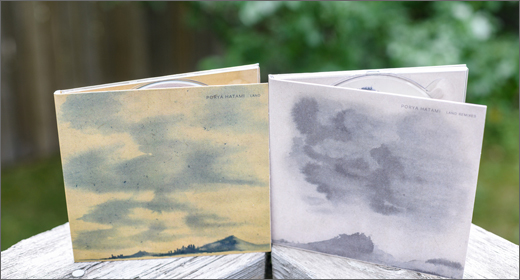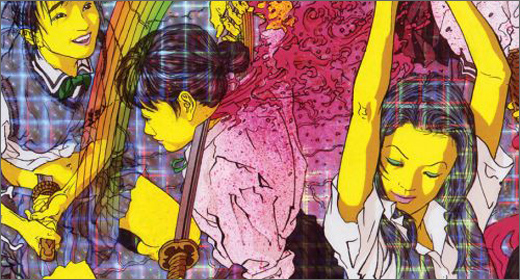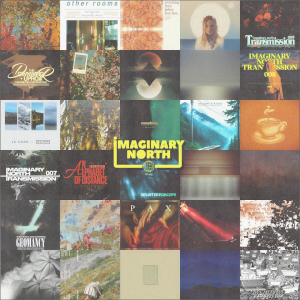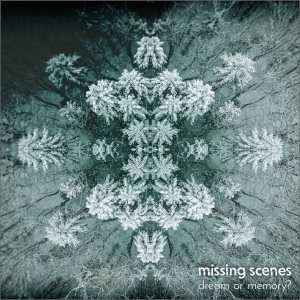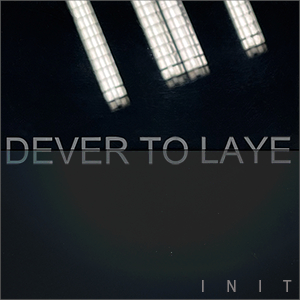Yasuragi Land serves as an invitation to listen closely to what the reality is telling and decipher all of its accompanying messages, delivering a blissful experience even on the littlest of the little things.
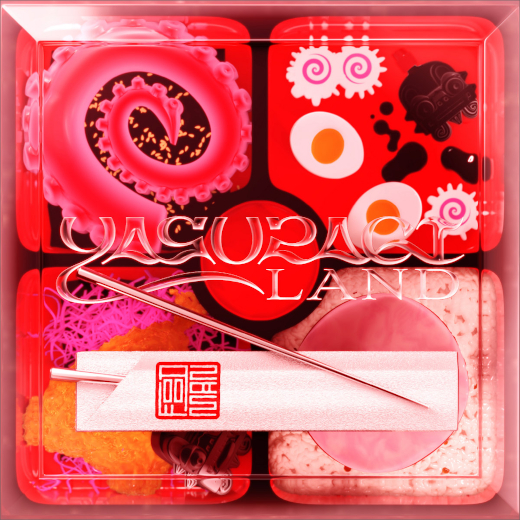
Delivering a blissful experience even on the littlest of the little things
Experimentation and exploration remain very apparent on his Hyperdub debut. Despite this, Foodman, in his first full-length album in three years, did not run away from his signature sound. Years after making his mark in the footwork genre, the Japanese electronic musician provides a more subtle and warmer re-imagination of his craft through Yasuragi Land. Each track offers different creative energy but maintains his “unmistakable impression,” with influences from his personal interests—foods and local bathhouses.
The album is pretty unusual on the Hyperdub platform. It features no bass, which is the first for Foodman in his line. Instead, the artist focuses on hyper-rhythmic music, using a few simple tools. Pops, swishes, and clipped gurgles are most apparent, with short clicks and small snippets of synth. They appear to be arranged into rhythms that cite various electronic music, which as per Pitchfork, has nods from house and footwork, all the way to classic video-game soundtracks, where Foodman first obtained his influences.
Yasuragi Land houses 15 tracks, with one featured artist. As fans would recall, Takahide Higuchi (aka Foodman), who was raised and is a resident in Nagoya, has produced music for other names in the industry. He has also made engagements, particularly in the psych-rock-trap duo, Kiseki with Taigen Kawabe. This is the same artist who guested on his latest work, specifically in “Michi No Eki”—where the full inspiration came from. As noted, the theme and track titles of Yasuragi Land take their forms from eating at the so-called Michinoeki. These are motorway service stations in Japan, where the artist enjoys the atmosphere. The artwork of the album itself speaks largely of this as it manifests Foodman’s love and fondness for food. Most of the tracks even bring listeners to various processes of eating, cooking, as well as some culinary delights. Alongside this, there are also some inspirations taken from the simple pleasures of visiting local public baths regularly.
Upon the release of the album, Foodman notes that he enjoys the vibe and atmosphere of these locations. Accordingly, in creating the album, which combines percussion and guitar, the artist incorporates the “sense of peace and community” he feels in these places amid the “uncertainty of the future.” He then refers to Yasuragi Land as the “place of tranquility.”
About Foodman ::
Foodman has released various music collections since his emergence in the scene in 2011. He first gained attention and traction a year earlier upon the public recognition of him, being a leading name in Japan’s juke and footwork arena. He has since based his musical productions on these areas. “Foodman” is Takahide Higuchi’s pseudonym. He is an electronic music producer and disc jockey. While he has rooted most of his work in the footwork scene, he morphs various styles, including house, techno, ambient, and noise music. This then leads many experts in the industry to call him an “experimental musician.” Since his earlier music productions, many publications have reviewed his works. Some reports even recalled his first experience in making music, noting that it was via the video game, Fluid, using a 1996 PlayStation. It was not specified, however, whether he had undergone music lessons of some sorts or anything alike.
Foodman previously said that he wants to make music out of the “fun little moments” in people’s everyday living. He also mentioned that he values the “psychedelic feelings” that one can, at times, get from the littlest of things. “I want to transpose what I feel at those moments into music,” he shared, according to Pitchfork’s views on his latest album. With that being said, this all appeared to have manifested in Yasuragi Land.
On to the tracks ::
Yasuragi Land begins with “Omiyage,” which lasts for more than two minutes. It seemingly serves its purpose of being the introductory product as the music itself speaks of being an “introduction” to Foodman’s latest work. Then, enters the titular track which embodies his toy-like and game-like music. It also makes listeners imagine some of the finest ingredients as if bringing everything onto the table before the actual execution of cooking a recipe. The popular “Michi No Eki,” which has its own music video on Hyperdub’s official channel, is the third track of the album. The popping sounds of the single give off the vibe of something boiling, which basically is part of the preparatory stage in cooking meals.
“Ari Ari” and “Shiboritate” play coincides with “Food Court” with those synth blips and percussive taps. Although there are few variations, these tracks seemingly transport the listeners to the actuality of the scenes and events of the said titles. Meanwhile, in “Hoshikuzu Tenboudai,” it appears to portray some chopping and slicing of ingredients or of some sort. It is not that far-stretched, considering the visuals Foodman has provided for the track. On its official music video, variations of sushi are shown as the single plays. But, based on assertions from experts, he appears to have paired it with machine learning.
Consequently, in “Shikaku No Sekai,” the vibe and ambiance give off the sensation of having meat in a course. As for “Gallery Cafe,” which comes next to “Food Court,” it features icy percussion into the feature-length. It also has some flute breeze over the beats, adding litheness to the work. The shortest track of Yasuragi Land, “Iriguchi,” meanwhile, has some sort of a funny note in it. Foodman seemingly portrayed his playful music in it, with all the “yelps,” which collide into horn blurts. As per others, it embodies the feels of being in a department store beyond the real world, or particularly in the spirit world. This track, then, complements “Numachi” well because of its sinister sound. It adds a very remarkable effect, alongside the gospel vocals present in the latter end of “Iriguchi.”
Overall, Foodman brings peace and serenity in his latest music production to the listeners. At the same time, the album emphasizes the beauty of the simplest things of everyday living. Whether it may be food or the ambiance of the surrounding, the tracks provide simple joys, as well as excitement, in every life’s minuscule moments. In this album, the tracks do not replicate these events but, rather, remind its audience that these little details are plausible. Moreover, Yasuragi Land serves as an invitation to listen closely to what the reality is telling and decipher all of its accompanying messages, delivering a blissful experience even on the littlest of the little things.
Final words ::
Foodman’s Yasuragi Land is a real exploration of details. Hyper-rhythmic percussion is at the core of the collection, making it extremely unique, and familiar at the same time. The artist offers the album in three forms: digital, physical-compact disc, and physical-record/vinyl. The digital form, which carries the price of $10.95 or £8, includes unlimited streaming and download through the Bandcamp app. As for the compact disc, it costs about $16.50 or £12. It already comes with the digital album, and ships out within a week. Meanwhile, the record/vinyl version of Yasuragi Land has a glossy, vibrant, and brilliant sleeve, which Plus Minus designed. The price is over $23 or £16.99. It also already comes with the digital album.
Yasuragi Land is available on Hyperdub. [Bandcamp]











